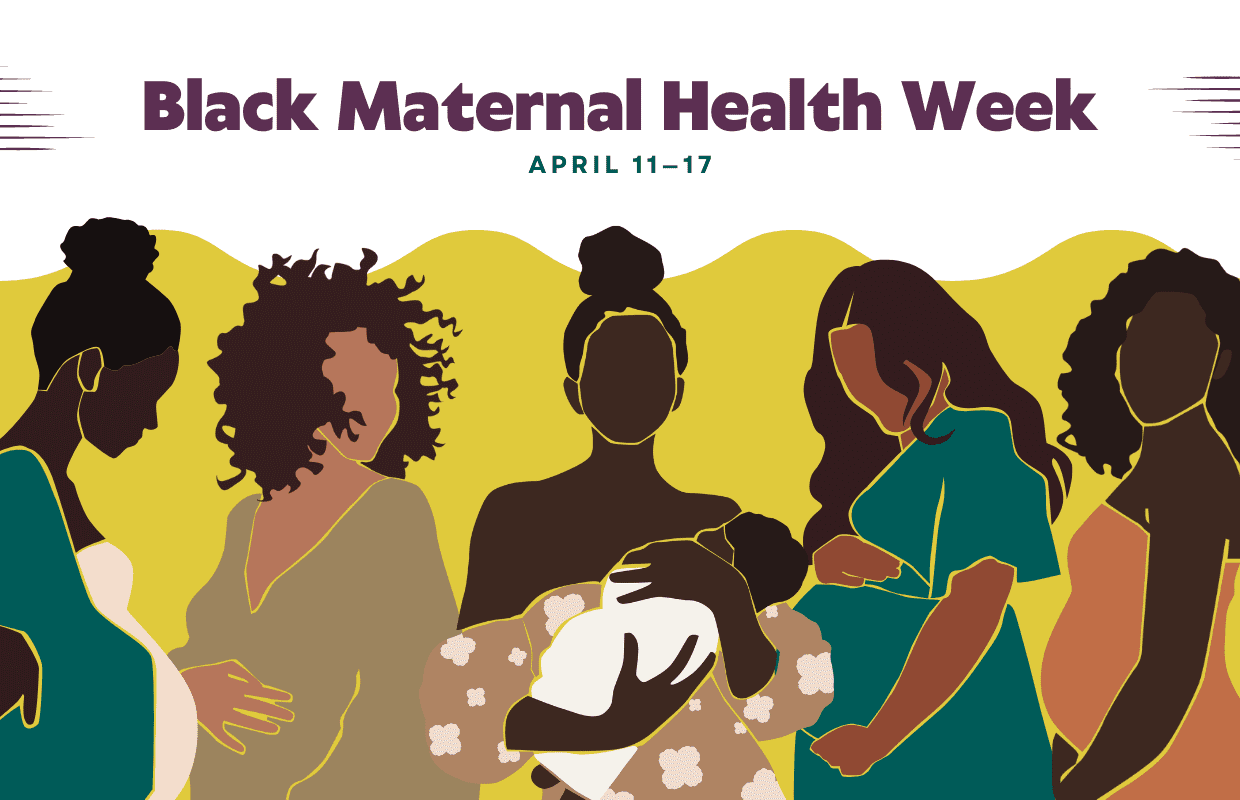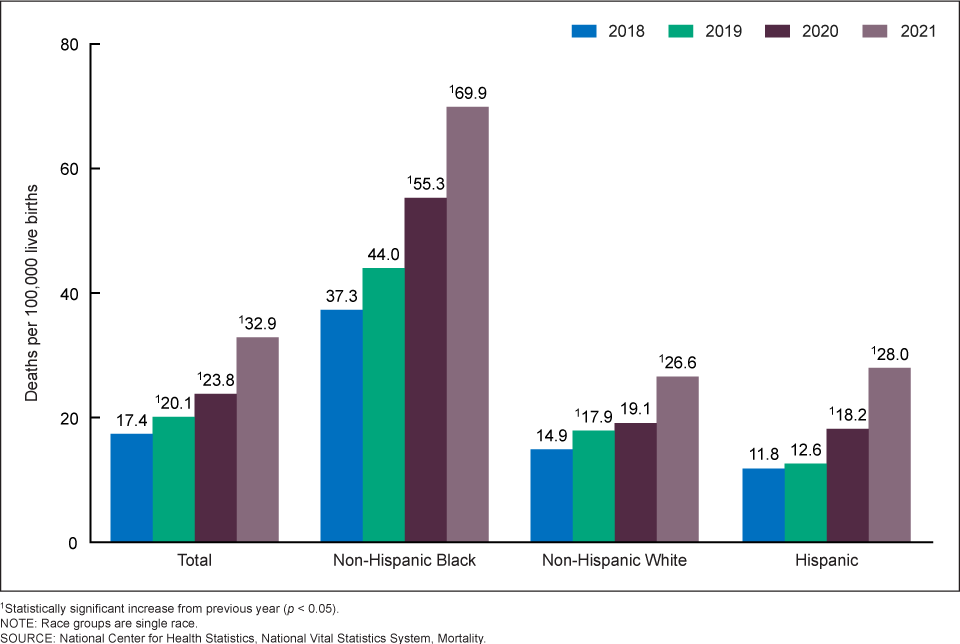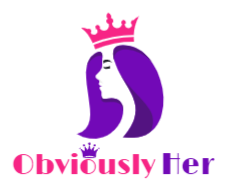Maternal health refers to the health of women during pregnancy, childbirth, and the postpartum period. It encompasses physical, emotional, and social well-being, ensuring safe motherhood.
Maternal health is a critical aspect of public health that significantly influences both maternal and child outcomes. Ensuring women receive adequate healthcare during pregnancy and after childbirth can reduce complications and improve overall health. Access to quality prenatal care, skilled birth attendance, and postnatal support is essential.
This area of health addresses various challenges, including nutrition, mental health, and access to medical resources. By prioritizing maternal health, communities can enhance the quality of life for mothers and their children. Investing in maternal health not only benefits families but also strengthens societies by promoting healthier generations. Understanding these factors is vital for effective healthcare policies and programs.

Credit: www.womensfundingnetwork.org
The Importance Of Maternal Health
Maternal health is crucial for the well-being of mothers and their children. Healthy mothers can give birth to healthy babies. Good maternal health leads to better outcomes for families and communities. Investing in maternal health saves lives and reduces healthcare costs.
Key Components Of Prenatal Care
Effective prenatal care consists of several important components. Each plays a vital role in the health of the mother and baby.
- Regular Check-ups: Frequent visits help monitor health.
- Nutrition: A balanced diet supports fetal growth.
- Education: Information on pregnancy helps mothers make informed choices.
- Screenings: Tests identify potential health issues early.
- Vaccinations: Immunizations protect against diseases.
Impact On Childbirth Outcomes
Maternal health significantly impacts childbirth outcomes. Healthy mothers often experience safer deliveries.
| Outcome | Healthy Mothers | Unhealthy Mothers |
|---|---|---|
| Lower Risk of Complications | ✔️ | ❌ |
| Higher Birth Weight | ✔️ | ❌ |
| Reduced Premature Births | ✔️ | ❌ |
| Better Long-term Health for Baby | ✔️ | ❌ |
Investing in maternal health leads to healthier families. It creates a positive ripple effect throughout communities.

Credit: www.healthline.com
Nutrition During Pregnancy
Nutrition plays a crucial role in a healthy pregnancy. Proper nutrition helps support the baby’s growth and development. It also benefits the mother’s health. Expecting mothers need to focus on what they eat. A balanced diet ensures both mother and baby receive essential nutrients.
Essential Vitamins And Minerals
Pregnant women need certain vitamins and minerals for a healthy pregnancy. These nutrients help with the baby’s development. Here are some of the most important:
| Vitamin/Mineral | Benefits | Sources |
|---|---|---|
| Folic Acid | Prevents neural tube defects | Leafy greens, beans, fortified cereals |
| Iron | Supports blood production | Red meat, spinach, lentils |
| Calcium | Builds baby’s bones and teeth | Dairy products, almonds, broccoli |
| Omega-3 Fatty Acids | Supports brain development | Fish, walnuts, flaxseeds |
Foods To Avoid For Safety
Some foods can harm the mother and baby during pregnancy. Avoiding these foods is essential. Here’s a list of foods to steer clear of:
- Raw or undercooked fish: Can contain harmful bacteria.
- Unpasteurized dairy: May carry listeria.
- Processed meats: High risk of foodborne illness.
- Caffeine: Limit intake to reduce risks.
- Alcohol: Can cause serious developmental issues.
Choosing safe, nutritious foods helps ensure a healthy pregnancy. Mothers should consult with healthcare providers for personalized advice.
Physical Activity And Wellness
Physical activity plays a vital role in maternal health. Staying active helps women during pregnancy. Exercise supports physical and mental wellness. It also prepares the body for childbirth. Engaging in regular activity enhances energy levels. It can reduce stress and anxiety. Women can experience many benefits through safe exercises.
Recommended Exercises
Safe exercises during pregnancy boost health. Here are some recommended activities:
- Walking: A simple, low-impact exercise.
- Swimming: Provides relief from weight and pressure.
- Yoga: Enhances flexibility and relaxation.
- Pilates: Strengthens core muscles safely.
- Stationary cycling: Great for cardiovascular fitness.
Always consult a healthcare provider before starting any exercise program. Each woman’s body is unique. Adjust exercises based on comfort and ability.
Understanding Body Changes
Pregnancy brings many changes to a woman’s body. Understanding these changes helps in planning physical activity.
| Body Change | Impact on Exercise |
|---|---|
| Increased weight | May affect balance and endurance |
| Hormonal changes | Can lead to fatigue and mood swings |
| Posture changes | May require adjustments in exercise form |
| Joint laxity | Increases risk of injury if not careful |
Understanding these changes aids in choosing appropriate exercises. Listen to your body. Take breaks when needed. Focus on maintaining a healthy routine.
Prenatal Medical Care
Prenatal medical care is vital for a healthy pregnancy. It involves regular check-ups and tests. Expecting mothers need to monitor their health and their baby’s development. Early and regular visits to a healthcare provider help catch any issues early.
Routine Check-ups And Tests
Routine check-ups are essential for monitoring both mother and baby. These visits typically occur every month during the first six months. After that, visits become more frequent. Here are some common components of routine check-ups:
- Blood pressure checks
- Weight monitoring
- Urine tests for protein and sugar
- Fetal heart rate monitoring
Healthcare providers also perform important tests, such as:
- Blood tests for anemia and infections
- Ultrasounds to check fetal development
- Gestational diabetes screening
These assessments help ensure a safe pregnancy. Early detection of problems can lead to better outcomes for both mother and child.
Identifying High-risk Pregnancies
Identifying high-risk pregnancies is crucial for a healthy delivery. Some factors may increase risks, such as:
- Age over 35
- Pre-existing health conditions
- Multiple pregnancies (twins, triplets)
- History of pregnancy complications
Healthcare providers will monitor high-risk pregnancies closely. This may include:
| Monitoring Method | Purpose |
|---|---|
| Frequent ultrasounds | Check baby’s growth and position |
| Non-stress tests | Monitor fetal heart rate |
| Specialist referrals | Address specific health concerns |
Proper prenatal care is key for all pregnancies. Early identification of risks leads to better strategies for care. A healthy pregnancy leads to a healthy baby.
Mental Health And Emotional Well-being
Mental health is crucial for expectant mothers. Pregnancy brings many changes. These changes can cause stress and anxiety. Maintaining emotional well-being is essential. It helps mothers bond with their babies. It also supports a healthy pregnancy journey.
Stress Management Strategies
Managing stress is vital during pregnancy. Here are effective strategies:
- Deep Breathing: Take deep breaths to calm your mind.
- Meditation: Spend a few minutes meditating each day.
- Exercise: Light exercises like walking can lift your mood.
- Journaling: Write your thoughts and feelings down.
- Healthy Diet: Eat balanced meals to fuel your body.
These strategies can reduce stress and promote well-being. Try to incorporate them into your daily routine.
Support Systems For Expectant Mothers
A strong support system is vital. It helps mothers feel less isolated. Here are some key support systems:
| Support Type | Description |
|---|---|
| Family Support | Family members can provide emotional and practical help. |
| Friends | Friends offer companionship and shared experiences. |
| Healthcare Providers | Doctors and counselors can give professional guidance. |
| Support Groups | Join groups for expectant mothers to share feelings. |
Utilizing these support systems can enhance emotional well-being. Stay connected and communicate your needs.
Preparing For Childbirth
Preparing for childbirth is an exciting journey. It involves planning and learning. Expecting mothers can feel more confident by knowing what to expect. This preparation helps reduce anxiety and fear. Understanding options leads to informed decisions.
Choosing The Right Birth Plan
Creating a birth plan is important. It outlines preferences for labor and delivery. Here are key elements to consider:
- Location: Hospital, birthing center, or home?
- Support Team: Who will be with you during labor?
- Pain Relief: Natural methods or medication?
- Interventions: Preferences for monitoring and other procedures?
- Postpartum Care: How you want to care for your baby?
Discuss your plan with your healthcare provider. They can help you understand the options. Flexibility is key. Birth plans can change based on circumstances.
Childbirth Education Classes
Childbirth education classes provide valuable information. These classes help you learn about labor, delivery, and postpartum care. Benefits include:
- Understanding the stages of labor.
- Learning breathing techniques for pain management.
- Gaining knowledge about medical interventions.
- Preparing for breastfeeding and newborn care.
- Connecting with other expecting parents.
Classes vary in format. Some are in-person, while others are online. Choose what fits your needs best. Check local hospitals or community centers for offerings.
| Class Type | Description | Duration |
|---|---|---|
| In-Person | Hands-on learning with direct interaction. | 4-6 weeks |
| Online | Flexible learning at your own pace. | Varies |
| Private | One-on-one instruction tailored to your needs. | Varies |
Choose a class that matches your learning style. Knowledge gained here helps you feel empowered. Being prepared makes a big difference in your childbirth experience.
Postpartum Care And Recovery
Postpartum care is vital for new mothers. Recovery after birth involves both physical and emotional healing. This period is crucial for adapting to new roles as a parent. Understanding the challenges and solutions helps in a smoother transition.
Physical Healing After Birth
After childbirth, a mother’s body undergoes significant changes. Physical healing varies for each woman. Here are some key areas to focus on:
- Perineal Care: Keep the area clean and dry. Use warm water to soothe discomfort.
- Uterine Contraction: Expect contractions as the uterus shrinks. This process may cause cramps.
- Breast Care: Proper breastfeeding techniques help avoid soreness. Use warm compresses for relief.
- Rest and Nutrition: Prioritize sleep and balanced meals. Healthy food aids in recovery.
Consider these tips for physical healing:
- Stay hydrated. Drink plenty of water daily.
- Engage in light activities. Walking promotes circulation.
- Follow up with your healthcare provider. Regular check-ups are essential.
Navigating New Parenthood
Becoming a parent is a life-changing experience. New parents face many challenges. Balancing personal needs with a newborn’s care is crucial.
Here are some strategies to help navigate this transition:
- Seek Support: Connect with family and friends. They can offer help and encouragement.
- Establish Routines: Create a daily schedule for feeding and sleeping. Routines provide stability.
- Communicate: Share feelings and concerns with your partner. Open dialogue strengthens relationships.
- Take Breaks: Allow time for self-care. Short breaks enhance well-being.
Emotional health is as important as physical health. Consider speaking to a professional if feelings of anxiety or sadness arise.

Credit: www.cdc.gov
Common Pregnancy Complications
Pregnancy can bring joy and excitement. However, it can also present challenges. Understanding common complications helps in managing them effectively. Two notable complications are gestational diabetes and preeclampsia.
Preventing And Managing Gestational Diabetes
Gestational diabetes affects many pregnant women. It occurs when the body cannot produce enough insulin. This leads to high blood sugar levels.
Risk Factors
- Obesity
- Age over 25
- Family history of diabetes
- Previous gestational diabetes
Prevention Tips
- Eat a balanced diet rich in fruits and vegetables.
- Exercise regularly, like walking or swimming.
- Monitor blood sugar levels regularly.
- Attend all prenatal appointments.
Management Strategies
Managing gestational diabetes is essential. Here are some strategies:
| Strategy | Description |
|---|---|
| Diet Control | Limit sugary foods. Focus on whole grains and proteins. |
| Regular Exercise | Engage in physical activity for at least 30 minutes daily. |
| Insulin Therapy | Sometimes insulin injections are necessary. |
Dealing With Preeclampsia
Preeclampsia is a serious condition that can occur after the 20th week of pregnancy. It causes high blood pressure and damage to organs, often the kidneys.
Signs and Symptoms
- High blood pressure
- Swelling in hands and feet
- Protein in urine
- Severe headaches
Risk Factors
- First-time pregnancy
- Multiple pregnancies (twins or more)
- History of preeclampsia
- Certain medical conditions, like diabetes
Management Options
Managing preeclampsia is crucial for both mother and baby. Here are some options:
| Management Option | Description |
|---|---|
| Regular Monitoring | Frequent check-ups to monitor blood pressure and symptoms. |
| Medication | Doctors may prescribe medication to lower blood pressure. |
| Early Delivery | In severe cases, early delivery may be necessary. |
Frequently Asked Questions
What Is Maternal Health?
Maternal health refers to the health of women during pregnancy, childbirth, and the postpartum period.
Why Is Maternal Health Important?
Maternal health is vital for reducing maternal and infant mortality rates and ensuring healthy families.
What Are Common Maternal Health Issues?
Common issues include gestational diabetes, preeclampsia, anemia, and mental health disorders.
How Can I Improve My Maternal Health?
Maintain a balanced diet, exercise regularly, attend prenatal check-ups, and manage stress effectively.
What Are The Signs Of Maternal Health Complications?
Signs include severe headaches, vision changes, swelling, abdominal pain, and excessive bleeding.
How Does Nutrition Affect Maternal Health?
Proper nutrition supports fetal development, reduces complications, and boosts the mother’s overall health during pregnancy.
What Role Do Prenatal Vitamins Play?
Prenatal vitamins provide essential nutrients, such as folic acid, that support the health of both mother and baby.
How Can Healthcare Providers Support Maternal Health?
Healthcare providers offer prenatal care, education, and resources to ensure a safe and healthy pregnancy.
Conclusion
Maternal health is essential for the well-being of families and communities. Prioritizing access to quality care and education can significantly improve outcomes. Every mother deserves support during pregnancy and beyond. By advocating for maternal health, we contribute to healthier generations.
Together, we can create a brighter future for mothers and their children.




